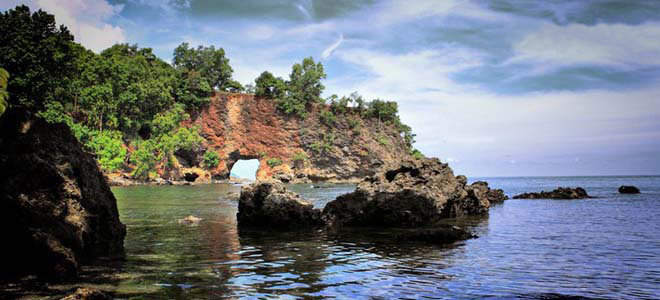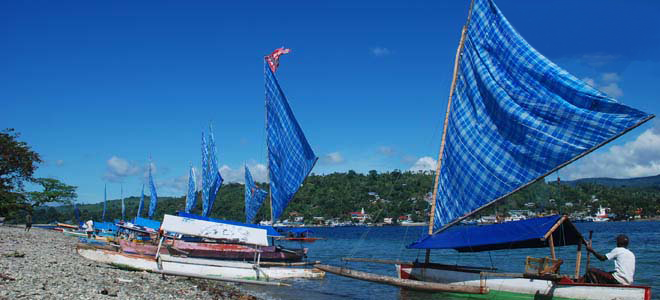Clove
Thursday, April 7 |
Posted by
Kacupengalus |
Until modern times, cloves grew only on a few islands in the Maluku Isla nds (historically called the Spice Islands), including Bacan, Makian, Moti, Ternate , and Tidore. Nevertheless, they found their way west to the Middle East and Europe well before the first century CE. Archeologists found cloves within a ceramic vessel in Syria India does not drain the Roman Empire of fifty million sesterces". Cloves were traded by Arabs during the Middle Ages in the profitable Indian Ocean trade. In the late fifteenth century, Portugal took over the Indian Ocean trade, including cloves, due to the Treaty of Tordesillas with Spain and a separate treaty with the sultan of Ternate . The Portuguese brought large quantities of cloves to Europe, mainly from the Maluku Islands
The trade later became dominated by the Dutch in the seventeenth century. With great difficulty the French succeeded in introducing the clove tree into Mauritius in the year 1770; subsequently their cultivation was introduced into Guiana , Brazil , most of the West Indies, and Zanzibar Britain
Cloves (Syzygium aromaticum, syn. Eugenia aromaticum or Eugenia caryophyllata) are the aromatic dried flower buds of a tree in the family Myrtaceae. Cloves are native to Indonesia Zanzibar , Indonesia and Madagascar ; it is also grown in India called Lavang , Pakistan , and Sri Lanka
Medical uses
Cloves are used in Ayurveda called Lavang in I ndia
Subscribe to:
Post Comments (Atom)



 Pintu Kota
Pintu Kota Rumah Tiga
Rumah Tiga Pattimura Statue
Pattimura Statue Night View
Night View  Sunset View
Sunset View 






 My name is Nyong Ullath. I have been currently working as an E-Commerce Supervisor at Swiss-Belhotel Manokwari International. I build and write this Blog all refers to my life, my home town, my work, Tahija Foundation (They offered me a Scholarship Program to study at STP Trisakti) and STP Trisakti "Trisakti Institute of Tourism (The University where I started to learn about tourism).
My name is Nyong Ullath. I have been currently working as an E-Commerce Supervisor at Swiss-Belhotel Manokwari International. I build and write this Blog all refers to my life, my home town, my work, Tahija Foundation (They offered me a Scholarship Program to study at STP Trisakti) and STP Trisakti "Trisakti Institute of Tourism (The University where I started to learn about tourism).
0 comments:
Post a Comment